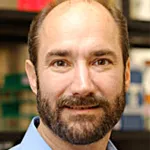
Photo by sukanya sitthikongsak, Shutterstock.
Stanford Medicine News Center - March 12th, 2019 - by Erin Digitale
In a bid to understand the origins of many childhood diseases, a Stanford team plans to broadly characterize the metabolic profiles of thousands of patients treated at Lucile Packard Children’s Hospital Stanford and Stanford Children’s Health clinics.
Researchers at the Metabolic Health Center, whose launch was approved by the dean’s office in February, will analyze patients’ blood and urine samples with mass spectrometry to measure about 1,500 small molecules per patient, with the ultimate goal of producing a detailed metabolic profile of every patient seen at the hospital or clinics. The metabolites, indicators of what the body’s cells are busy doing, will include nearly 800 individual lipids and an additional 700 nonlipid chemicals. The team plans to have their first 1,000 metabolic profiles completed by the end of 2019.
“Your metabolic signature is a really strong signifier of your health,” said Michael Snyder, PhD, professor and chair of genetics and co-director of the new center.
Metabolism is the collection of chemical reactions carried out by a cell to maintain life, such as breaking down carbohydrates, fats and proteins for energy; metabolites are the products of those reactions.
At present, doctors routinely measure only a tiny handful of metabolites in the blood, such as glucose and cholesterol. Although these measurements can provide clues about specific diseases, comprehensive profiling holds the potential to provide a more detailed view into many more diseases, including how they evolve and why metabolism goes awry, Snyder said. The research team plans to link their discoveries to genetic information to better understand the genetic origins of disease.
In metabolic problems that develop slowly, such as obesity and Type 2 diabetes, medical scientists have only a limited understanding of what goes wrong in the early stages of the disease process.
Profiling healthy patients
“By profiling people first while they’re healthy, we will be able to catch problems, before they become symptomatic,” said Snyder, who holds the Stanford W. Ascherman, MD, FACS, Professorship in Genetics. “That will be huge in terms of enabling us to avoid complications that come later.”
The team also hopes to gain a clearer understanding of rare metabolic diseases, including inherited metabolic disorders, and of the processes by which premature infants can develop serious complications and acquired diseases that are associated with being born too soon or too small. “Deep metabolomics profiles will be informative in some of these cases in helping us understand what’s wrong,” Snyder said. “We also hope it will lead to new therapies.”
California’s newborn screening program now looks for approximately 40 different metabolic diseases in babies, but because it relies on a limited number of metabolites that are already linked to known diseases, it does not pick up on children with unknown or less-understood conditions. As a result, many children with developmental delay have no formal medical diagnosis. The new project may help clarify a myriad of mystery conditions. In fact, nearly every disease has an underlying metabolic signature.
“We believe it will be possible to extend the principle of newborn screening for genetic disease to many more newborns and children at risk for acquired diseases using the center’s expertise in expanded metabolic profiling,” said Karl Sylvester, MD, associate dean for maternal and child health and co-director of the new center.
Other co-directors of the center are David K. Stevenson, MD, senior associate dean for maternal and child health and professor of pediatrics, and Tina Cowan, PhD, professor of pathology. Kevin Contrepois, PhD, is the center’s scientific director, and Casandra Trowbridge is its administrative and operations director.
“Ultimately, our aim is to keep children healthy rather than treat them after they develop disease,” Snyder said. “This project fits really well with Stanford’s prowess at being able to mine big data and apply the results to improving human health.”
The center is supported by Lucile Packard Children’s Hospital Stanford; the medical school’s departments of Genetics, of Pediatrics and of Pathology; the Stanford Precision Health Biobank; and Thermo Fisher Scientific.




